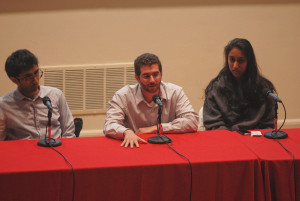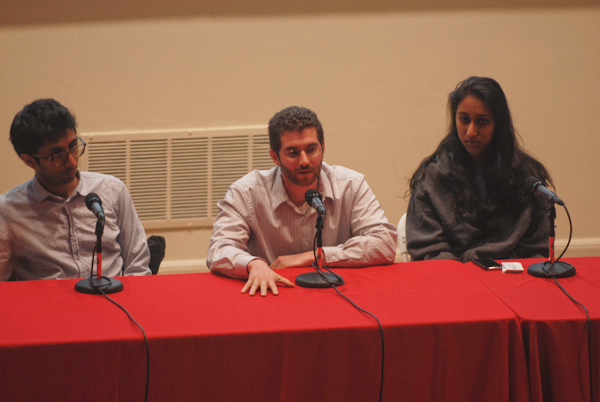
Student entrepreneurs from the Stanford StartX accelerator gathered at a panel Wednesday night to share insights from their experiences developing companies. The event was a part of Stanford’s Entrepreneurship Week, which runs from Feb. 27 to March 7 and aims to showcase the best of entrepreneurship in the Stanford community.
“We don’t want to create a room with padded walls,” said Cameron Teitelman ‘11, StartX founder and senior managing director. “We have direct feedback so people can learn whether or not what they’re doing is effective.”
The StartX model involves the centralization of the extensive resources at Stanford in order to provide for Stanford student entrepreneurs. StartX — which is a division of the financial arm of the ASSU, Stanford Student Enterprises (SSE) — is the largest student start-up accelerator at Stanford and aspires to promote independent learning through experiential education.
The entrepreneurs who spoke at the panel event gave testimonies to the success of StartX so far. In addition, two undergraduates and four graduate students who had each launched successful companies in the biotech and information technology fields were members of the panel. As the individuals shared their personal stories and challenges, the discussion focused on the frustrations and difficulties of start-up development.
“The biggest hurdle for everyone is going from the wanting to the believing,” said Michael Carter, co-founder at Game Closure. “But at the point where you have nothing outside of what you’re working on, you have nothing to do but succeed.”
The moderator asked the panelists what they do when they are told they cannot succeed.
“Either your idea really isn’t good, or you didn’t explain yourself well,” said Brenden Millstein M.B.A ‘10 M.S. ‘11, CEO and co-founder of Carbon Lighthouse. “Keeping this self-reflexive mindset is helpful, and outside feedback can be very beneficial.”
The student entrepreneurs also spoke about how to navigate working with a close friend. The panelists all agreed that trusting other’s strengths is the underlying key to successful business development.
“One of the biggest failures of student companies is the inability of friends to separate personal and professional relationships, which can really hinder a company,” Teitelman said. “It is important to form relationships and have a proactive method to evaluate who would be good to work with.”
A primary benefit of the StartX program is the community of peer support for companies, the panelists said.
“You learn from information and peer exchange, as well as accumulate resources and build a network,” said Divya Nag ‘13, a co-founder at Stem Cell Theranostics. “It paints a picture of how the world works from other people’s perspectives.”
Because most companies experience similar struggles in the development process, Teitelman said that StartX emphasizes a peer and mentor education system, which is rooted in questioning and problem-solving collaboration.
“StartX has been incredibly beneficial because of the community,” Millstein added. “Being able to walk around to 10 or 20 companies that had just solved the exact issue we needed to solve literally saved hundreds of hours.”
